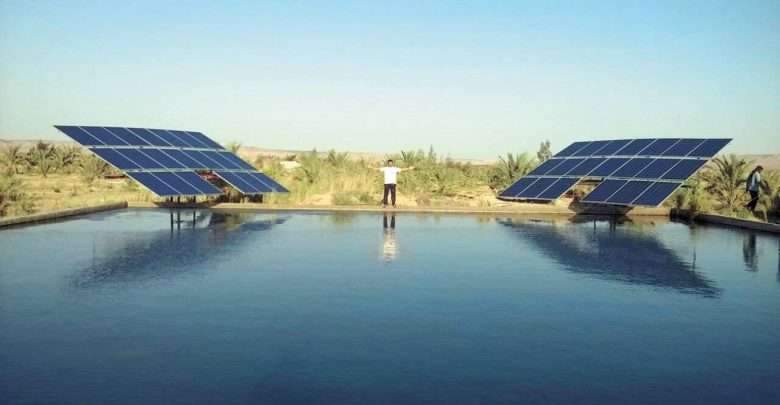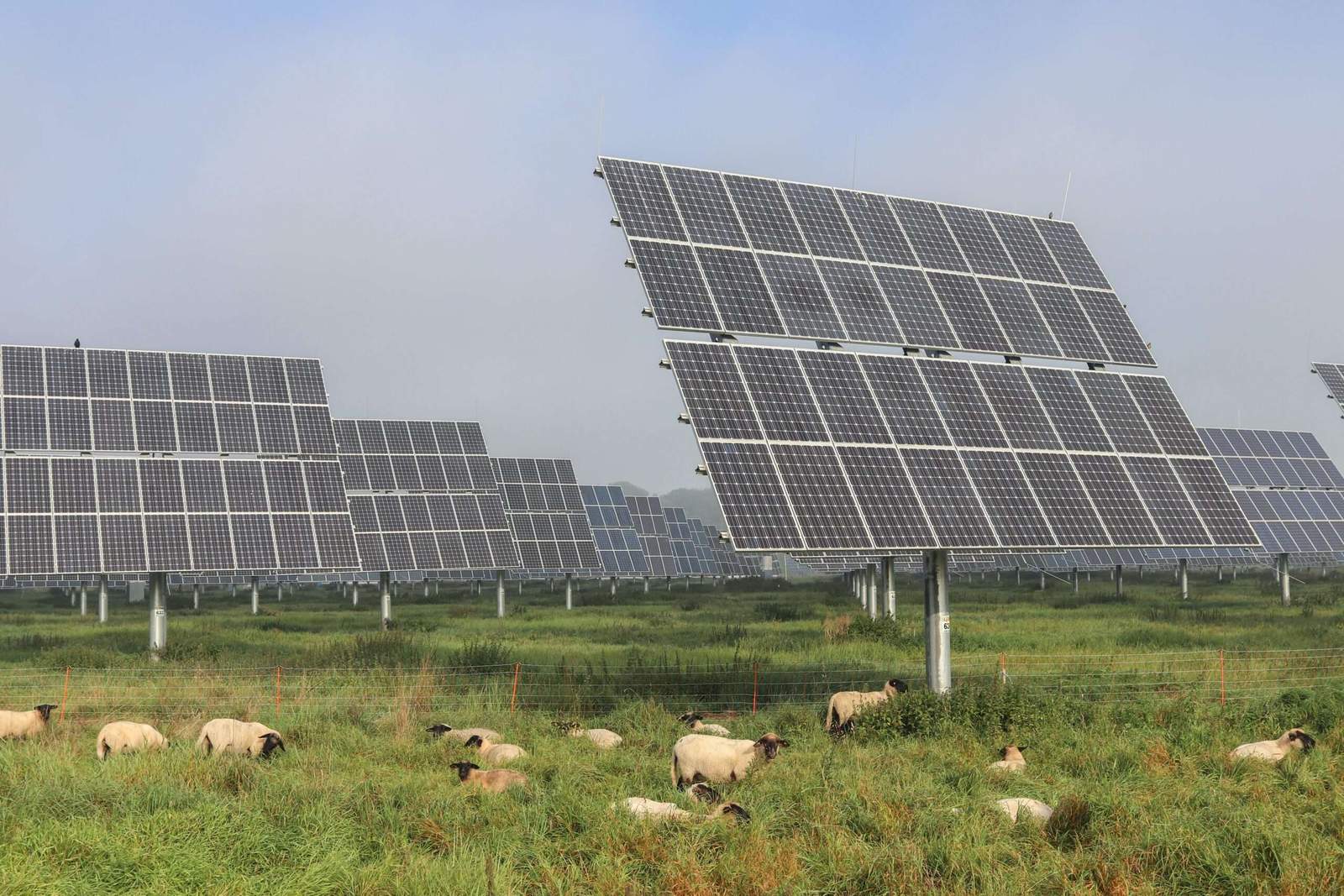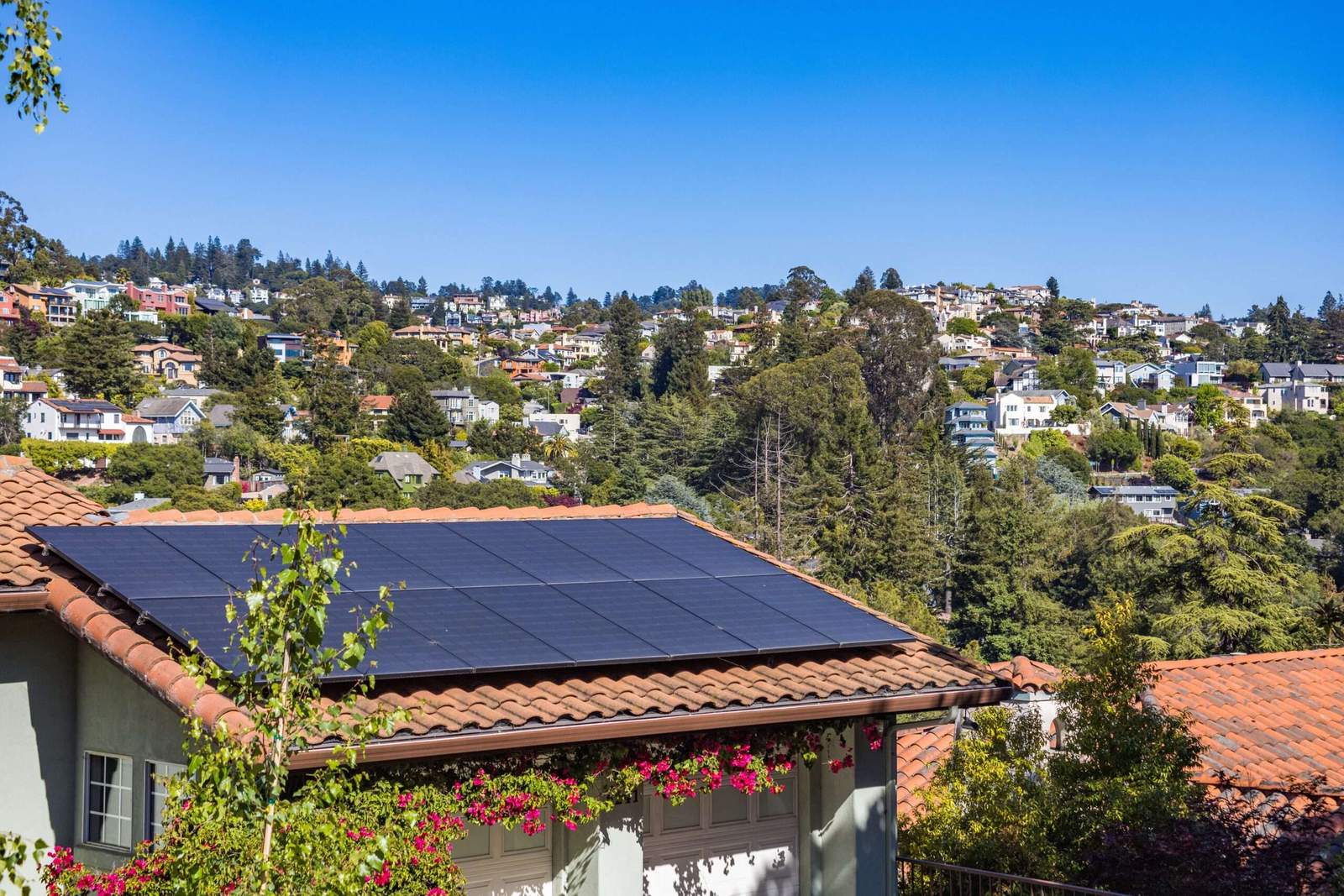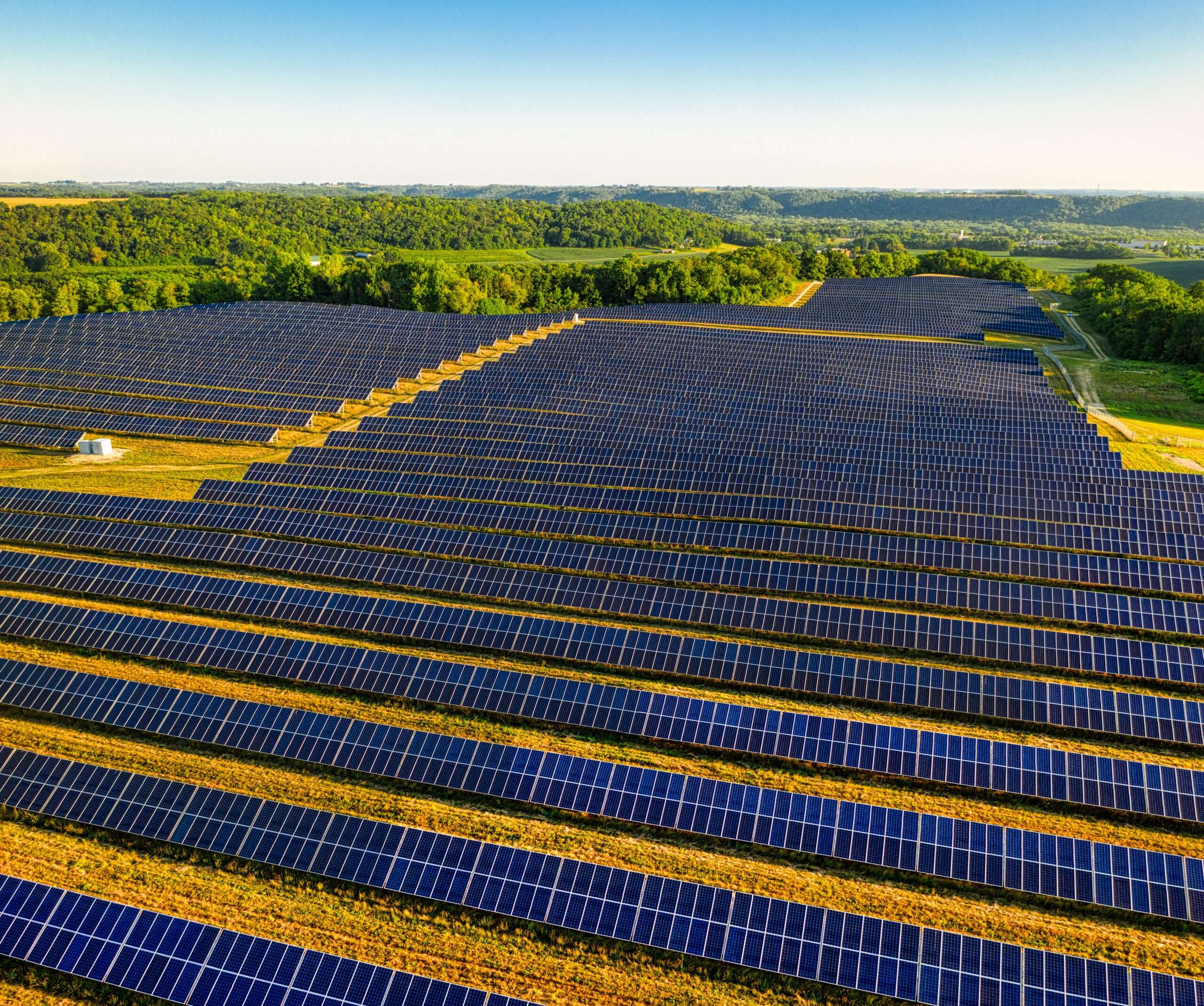Solar energy technology has emerged as a viable source of clean energy as the world moves towards a greener and more sustainable future.
Solar energy, which is generated from the sun’s light and heat, is an abundant and fully renewable energy source.
In this article, we will look at the various advantages of solar energy and its many benefits to individuals,
businesses and the environment.
We will also discuss cost savings on energy bills, environmental benefits,
durability and longevity of the solar system, government incentives, and ease of maintenance.
By the end of this article, readers will have a better understanding of how solar energy can create a bright and sustainable future.

Advantages of solar energy
Solar energy has become an increasingly viable and popular form of renewable energy in recent years,
with the solar energy market growing rapidly.
As more people are becoming aware of its many advantages.
Solar energy offers many benefits that make it an attractive renewable energy source.
Savings on energy bills
In an ever-evolving energy landscape, solar energy is emerging as a powerful energy source that can support a more sustainable energy future.
It saves significant billing costs on energy bills.
As the technology and affordability of solar energy continues to improve,
both residential and commercial customers are realizing the long-term benefits of solar energy investments.
In most cases, the cost savings associated with solar energy start with installation.
Of course, installation costs vary by geography, solar system size, and other factors,
but the returns on investment are often great as well.
In addition to savings on electricity bills due to covering the initial cost of installation through energy savings,
Solar investments can also often qualify for government incentives, such as tax credits and rebates,
which lower the overall cost.
Moreover, in many areas, customers can benefit from net metering,
Customers generate the energy and either use it or sell it back to the grid and get a credit or discount.
Moreover, the long-term benefits of solar energy are worth examining.
The average solar panel system is expected to last 25 to 30 years,
which means customers can enjoy decades of free electricity after recouping installation costs.
In addition, because solar energy is renewable,
customers can know that their energy costs will remain relatively stable over the life of their system.

Environmental benefits
Solar energy is emerging as an attractive alternative as the world strives to meet the urgent need for renewable energy sources.
Not only is it an abundant resource, it has the potential to bring countless environmental benefits.
The most attractive feature of solar energy is its non-polluting nature.
Unlike many other forms of energy production, solar energy generates no emissions of air pollutants or greenhouse gases.
This means that solar energy does not contribute to global warming and climate change,
which makes it an excellent choice for a clean energy source.
In addition to its non-polluting properties, solar energy also reduces the need for energy from other sources.
For example, by using solar energy, we can reduce our dependence on fossil fuels and cut down on other forms of electricity.
This, in turn, helps reduce the amount of carbon dioxide and other greenhouse gases emitted into the atmosphere.
Moreover, solar energy has the potential to further benefit the environment.
And by using solar panels to capture the sun’s energy and convert it into electricity,
we can reduce the amount of land and water needed to produce conventional energy.
This can help reduce the effects of deforestation and, in some cases, help conserve water resources.

Durability and longevity of the solar system
Solar energy is a reliable renewable energy source that can last for decades.
This form of energy is sustainable, highly durable and reliable.
Solar panels, in particular, have an estimated lifespan of 25 to 45 years,
depending on where they are deployed and how well they are maintained.
While the average lifespan of solar panels is 25 years, some manufacturers offer warranties of up to 30 to 40 years.
Solar system parts such as batteries, inverters and charge controllers also have a long life.
These components are designed to last up to 10 years with proper maintenance.
Inverters, in particular, can last up to 20 years or more if they are maintained regularly.
Some manufacturers also offer extended warranties on solar power system parts,
providing additional assurance to their customers.
Moreover, solar energy is highly adaptable and customizable.
Solar systems can be customized to meet the specific needs of individual customers.
For example, customers can add more solar panels to their system if they want more power.
This makes it an ideal solution for home and business owners who want to increase or decrease their energy production as needed.
And solar energy is a very reliable and durable power source with robust warranties,
long-lasting components and the ability to customize to individual needs.
And with proper maintenance, solar energy can be enjoyed for decades.

Government incentives and tax credits
The economic benefits of investing in solar energy are becoming increasingly attractive, as governments around the world offer various tax rebates and other incentives.
These incentives make it affordable for home and business owners to convert to renewable energy sources.
In the United States, the federal government offers several different incentive programs for those interested in investing in solar energy.
For example, the Investment Tax Credit (ITC) is a 30% tax credit on solar energy systems and other renewable energy technologies.
This credit is available for residential and commercial facilities, and can cover up to 30% of the total system cost.
In addition, ITC is available for any solar system installed before the end of 2021.
Although, the amount of the tax credit starts phasing out after 2020.
In addition to ITC, many countries are also offering incentives to help make the transition to solar energy affordable.
For example, many states offer Solar Renewable Energy Credits (SRECs),
They are tradable certificates based on energy production, allowing homeowners to generate income from their investment
In the field of solar energy and utilities to achieve their goals in the field of renewable energy.
In addition, many states offer property tax credits, allowing homeowners to avoid paying property taxes on their solar systems.
The local level is also involved in encouraging investment in solar energy.
For example, many municipalities offer a local property tax exemption, which allows homeowners to get an exemption from local taxes on the added value of their solar system.
In addition, solar energy incentives are offered at the community level, such as the popular Solarize campaigns,
This encourages the wholesale purchase of solar energy systems within the neighborhood.
Solar energy also has the potential to create jobs and contribute to economic growth.
With the increase in the demand for solar energy, the demand for solar energy technicians and engineers also increases.
This creates a range of job opportunities in the renewable energy sector.
In addition, the economic stimulus from solar energy can help reduce the financial burden of electricity bills on homes and businesses.
While at the same time helping to reduce energy production costs.

Easy maintenance
One of the main advantages of solar energy is the ease of maintenance required to keep the system up and running.
As technology advances, fewer components are required to successfully capture and store energy,
resulting in an overall simpler system.
Cleaning solar panels is only necessary a few times a year, depending on the location and the amount of dust and debris in the air.
Solar energy also requires little or no maintenance in terms of mechanical or electrical components.
What makes them extremely reliable and low cost in terms of maintenance.
Solar systems can sometimes be set on a schedule of regular maintenance and monitoring,
allowing the system to run smoothly with minimal effort on the part of the owner.
On-site maintenance technicians can also be called in to check, clean and repair any individual components, ensuring efficient system operation.
In the event of an emergency or failure, trained technicians can also be called in to repair and restore the system to optimum levels quickly and efficiently.
The low maintenance cost associated with solar power is also a big plus,
allowing owner to enjoy all the benefits of the system without the cost of regular maintenance being a burden.
From an environmental point of view, solar energy is much cleaner than conventional energy sources,
reduces the user’s carbon footprint and contributes to a healthier planet.
This makes it an attractive choice for those seeking to reduce energy costs while promoting a healthy environment.
All in all, the ease of maintenance associated with solar power makes it an attractive option that is becoming increasingly popular as the technology grows in efficiency and reliability.
Owners can reap the benefits of this clean and reliable energy source by investing in a solar power system without the headache of regular maintenance.
For more architectural news







